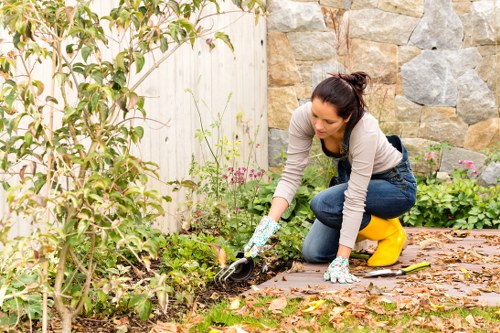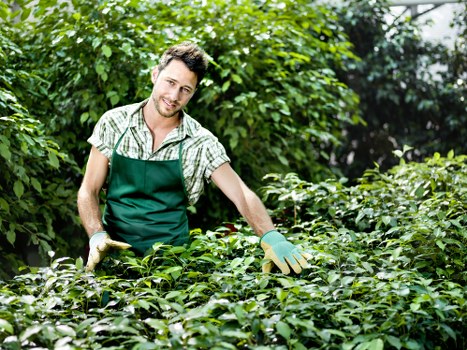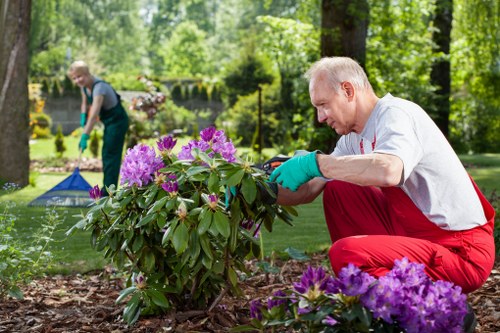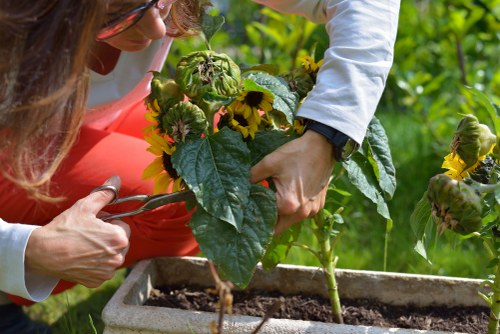Gardening in Rosebud: Cultivating Beauty in Your Local Paradise
Introduction to Gardening in Rosebud

Welcome to the vibrant world of Gardening in Rosebud, where lush landscapes and thriving plant life are more than just aspirations—they are daily realities for residents and gardening enthusiasts alike. Nestled in a picturesque location, Rosebud offers a unique climate and soil conditions that are ideal for a wide variety of plants, making it a haven for both amateur gardeners and seasoned horticulturists.
Whether you're looking to create a serene backyard retreat, cultivate a colorful flower garden, or grow your own vegetables and herbs, Rosebud provides the perfect setting. The community here is passionate about gardening, sharing knowledge, resources, and support to ensure that every garden flourishes. In this comprehensive guide, we'll explore the essentials of gardening in Rosebud, from selecting the right plants to maintaining your garden throughout the seasons.
With its rich soil and favorable weather patterns, Rosebud allows for an extended growing season, giving gardeners the opportunity to experiment with a diverse range of plants. Additionally, the area's commitment to sustainability and eco-friendly practices makes it an ideal place for those interested in organic gardening and sustainable living.
Choosing the Right Plants for Rosebud

Selecting the right plants is crucial for a successful garden in Rosebud. The region's climate, characterized by mild winters and warm summers, supports a variety of plant species. Native plants are particularly well-suited to the local environment, as they are adapted to the soil and weather conditions, requiring less maintenance and water.
Consider incorporating a mix of perennials and annuals to ensure year-round interest in your garden. Perennials such as lavender, salvia, and echinacea provide structure and color over multiple seasons, while annuals like marigolds, petunias, and zinnias offer vibrant blooms throughout the growing season.
Additionally, Rosebud's climate is conducive to growing a range of vegetables and herbs. Tomatoes, peppers, basil, and mint thrive in the warm months, while leafy greens like spinach and kale are perfect for cooler temperatures. For those interested in fruit gardening, berries and citrus trees can also be successfully cultivated in this region.
Soil Preparation and Maintenance

Healthy soil is the foundation of a thriving garden. In Rosebud, the soil is typically rich in organic matter, but it's essential to test your soil's pH and nutrient levels before planting. Most plants prefer slightly acidic to neutral soil, with a pH range of 6.0 to 7.0. Adjustments can be made using natural amendments like lime to raise pH or sulfur to lower it.
Adding compost to your soil not only improves its structure but also enhances its fertility. Compost enriches the soil with essential nutrients, promotes microbial activity, and increases water retention, ensuring that your plants receive the sustenance they need to grow strong and healthy.
Regular maintenance is key to sustaining a productive garden. This includes mulching to suppress weeds, conserving moisture, and regulating soil temperature. Additionally, practicing crop rotation and using cover crops can prevent soil depletion and reduce the risk of pests and diseases.
Watering Strategies for Rosebud Gardens

Efficient watering is vital for the success of your garden. Rosebud's climate allows for consistent watering practices, but it's important to tailor your approach based on the specific needs of your plants. Drip irrigation systems are highly recommended as they deliver water directly to the plant roots, minimizing evaporation and reducing water waste.
Mulching around your plants helps retain moisture in the soil, decreasing the frequency of watering needed. Organic mulches such as straw, wood chips, or shredded leaves also improve soil health as they decompose, adding nutrients back into the ground.
It's best to water your garden in the early morning or late afternoon to avoid the intense midday heat, which can cause water to evaporate quickly. Deep, infrequent watering encourages plants to develop strong root systems, making them more resilient to drought and other stressors.
Pest and Disease Management

Maintaining a healthy garden involves managing pests and diseases effectively. Integrated Pest Management (IPM) is a sustainable approach that combines biological, cultural, and chemical methods to control pests while minimizing environmental impact. Start by selecting disease-resistant plant varieties and promoting biodiversity to naturally deter pests.
Encourage beneficial insects like ladybugs and predatory beetles, which help control harmful pest populations. Regularly inspect your plants for signs of pests or diseases, and address issues promptly to prevent them from spreading. Using natural remedies such as neem oil or insecticidal soaps can be effective in managing minor infestations.
Proper sanitation practices, such as removing fallen leaves and debris, also reduce the likelihood of pests and diseases taking hold in your garden. Additionally, crop rotation and avoiding over-fertilization can help maintain plant health and resilience.
Local Gardening Resources in Rosebud

Rosebud boasts a wealth of local resources to support your gardening endeavors. The Rosebud Community Garden is a popular destination, offering plots for residents to cultivate their own plants and share gardening tips. Seasonal workshops and classes are regularly held, covering topics from organic gardening to landscape design.
The local Rosebud Nursery provides a diverse selection of plants, tools, and supplies tailored to the region's gardening needs. Expert staff are available to offer personalized advice and help you choose the best plants for your garden's conditions.
For those interested in sustainable practices, the Rosebud Environmental Garden focuses on eco-friendly gardening techniques, including composting, rainwater harvesting, and native plant cultivation. They also offer educational programs to promote environmental stewardship among gardeners of all ages.
Seasonal Gardening Tips
Gardening in Rosebud requires adapting to the changing seasons to ensure your garden remains healthy and productive year-round.
Spring
As the weather begins to warm, it's the perfect time to plant new seeds and prepare your garden beds. Start by clearing out any debris from the winter months and enriching the soil with compost. Plant early spring vegetables like peas and lettuce, and prepare perennials for the upcoming growing season.
Summer
Summer is a busy time for gardeners, with plenty of blooming flowers and thriving vegetables. Focus on regular watering, especially during heatwaves, and use shade cloths to protect sensitive plants from intense sunlight. Prune and deadhead flowers to encourage continuous blooming.
Autumn
Autumn is ideal for planting bulbs and preparing your garden for the winter months. Harvest remaining vegetables and add organic matter to your soil to replenish nutrients. It's also a good time to divide perennials and transplant them as needed.
Winter
During the winter, focus on garden maintenance tasks such as pruning trees, protecting plants from frost, and planning your garden layout for the next year. Utilize cold frames or greenhouses to extend the growing season for certain plants.
Community and Support
One of the standout features of Gardening in Rosebud is the strong sense of community among local gardeners. Numerous clubs and associations provide platforms for sharing knowledge, resources, and encouragement. Participating in community events like plant exchanges, garden tours, and seasonal festivals fosters camaraderie and inspires creative gardening ideas.
Online forums and social media groups dedicated to Rosebud gardening offer additional support, allowing gardeners to ask questions, share successes, and seek advice from experienced peers. These networks are invaluable for both novice and veteran gardeners looking to expand their skills and connections.
Local schools and educational institutions also integrate gardening programs, educating the younger generation about the importance of plants, sustainability, and environmental stewardship. These initiatives ensure that the tradition of gardening continues to thrive in Rosebud.
Advanced Gardening Techniques
For those looking to take their gardening to the next level, Rosebud offers opportunities to explore advanced techniques that enhance plant growth and garden productivity.
Hydroponics
Hydroponic gardening allows for soil-less cultivation, using nutrient-rich water solutions to grow plants indoors or in controlled environments. This method can increase yield and reduce water usage, making it a sustainable option for avid gardeners.
Permaculture
Permaculture focuses on creating self-sustaining ecosystems that work in harmony with nature. By designing gardens that mimic natural systems, gardeners can increase biodiversity, improve soil health, and reduce the need for external inputs.
Vertical Gardening
Vertical gardening maximizes space by growing plants upwards rather than outwards. This technique is especially useful for small gardens or urban settings, allowing for the cultivation of a wide variety of plants without requiring extensive ground space.
Implementing these advanced techniques can lead to more efficient, productive, and environmentally friendly gardens, catering to the diverse interests of Rosebud's gardening community.
10 Nearby Areas to Rosebud for Gardening Enthusiasts
Rosebud is surrounded by several charming areas that offer unique gardening opportunities and services. Here are the 10 closest areas to Rosebud that you might want to explore:
- Greenfield - Just 5 miles from Rosebud, Greenfield is known for its extensive nursery and plant shops, providing a vast selection of native and exotic plants.
- Lakeside - Located 7 miles away, Lakeside offers beautiful waterfront gardens and specialized aquatic plant nurseries.
- Maple Grove - 10 miles from Rosebud, Maple Grove is celebrated for its vibrant fall foliage and community gardening projects.
- Oakridge - Situated 12 miles away, Oakridge is home to several botanical gardens and offers workshops on sustainable gardening practices.
- Pinehurst - 15 miles from Rosebud, Pinehurst features pine tree nurseries and specializes in conifer cultivation.
- Sunnyvale - Located 18 miles away, Sunnyvale is renowned for its sunny climate, ideal for growing a wide variety of vegetables and fruits.
- Brookside - 20 miles from Rosebud, Brookside offers charming riverfront gardens and expert advice on water-wise gardening.
- Willow Creek - Situated 22 miles away, Willow Creek is known for its diverse plant community and offers numerous garden tours.
- Cherry Hill - 25 miles from Rosebud, Cherry Hill boasts beautiful cherry blossom gardens and seasonal flowering events.
- Harborview - Located 28 miles away, Harborview specializes in coastal gardening techniques and salt-tolerant plant species.
Each of these areas provides unique features and resources that can enhance your gardening experience in Rosebud. Whether you're looking for specialized plant varieties, educational workshops, or simply inspiration from neighboring gardens, these nearby communities have something to offer every gardener.
Final Thoughts and Call to Action
Embarking on a gardening journey in Rosebud is a rewarding experience filled with beauty, community, and growth. By understanding the local climate, selecting the right plants, and utilizing available resources, you can create a thriving garden that enhances both your home and the environment.
Don't wait to transform your outdoor space into a lush, vibrant oasis. Contact us today to learn more about gardening services in Rosebud or book your service now to get started on cultivating your dream garden. Join the Rosebud gardening community and watch your green space flourish!
